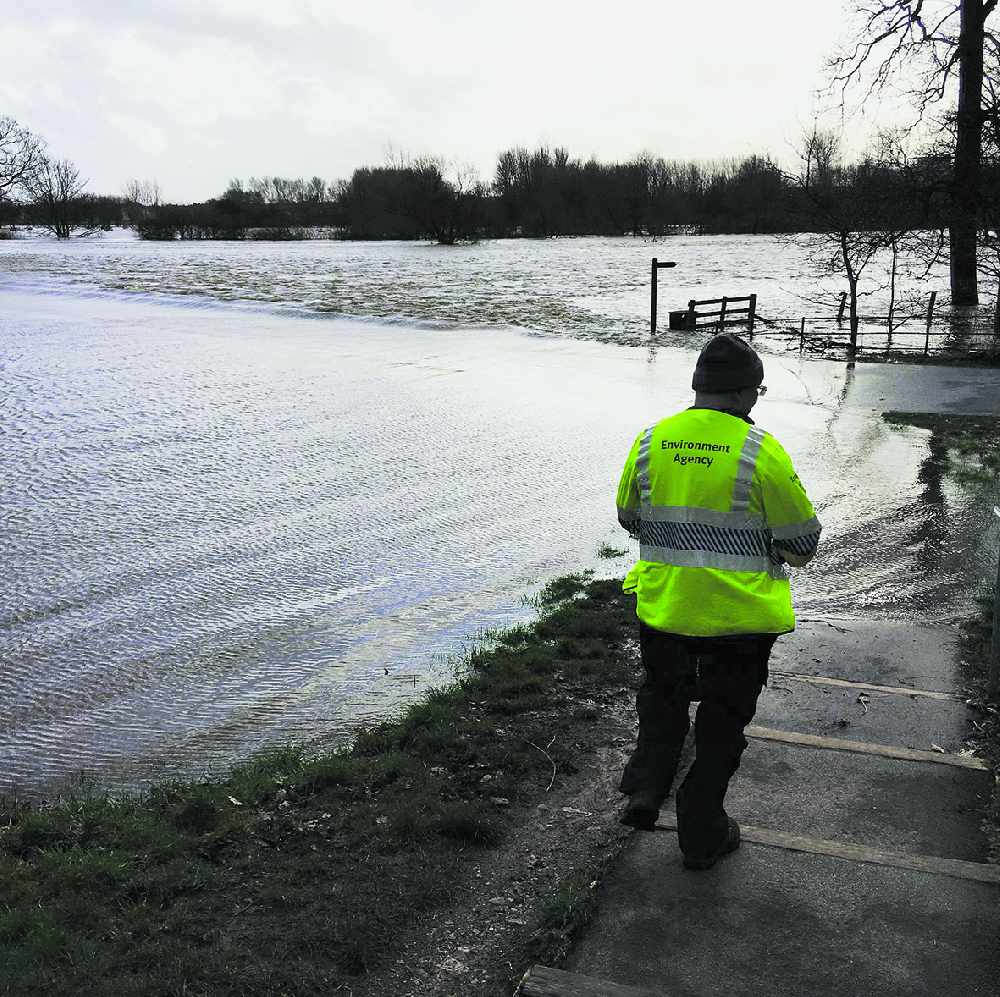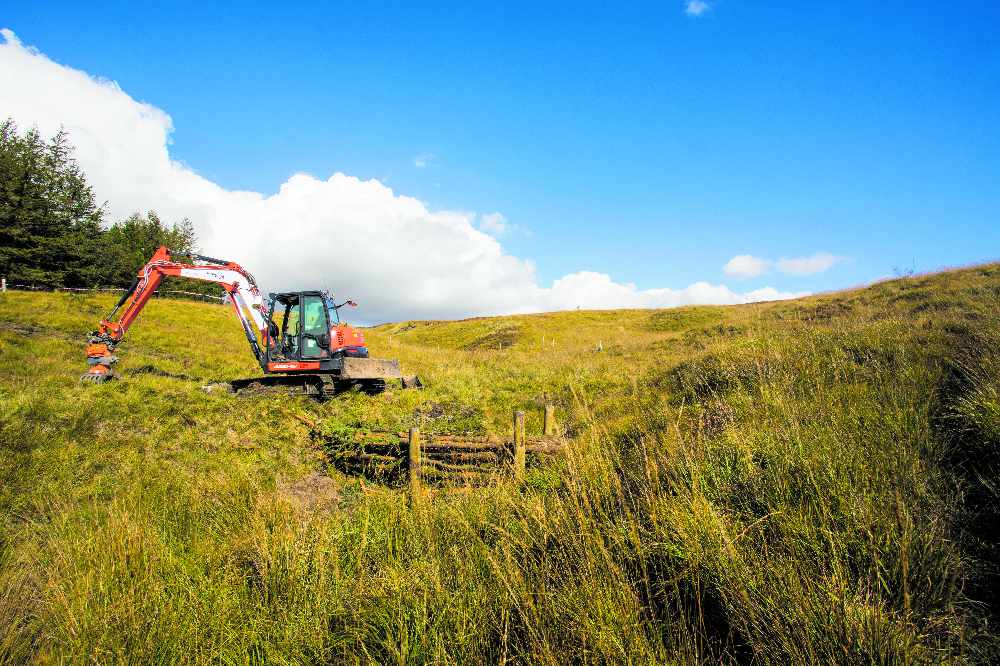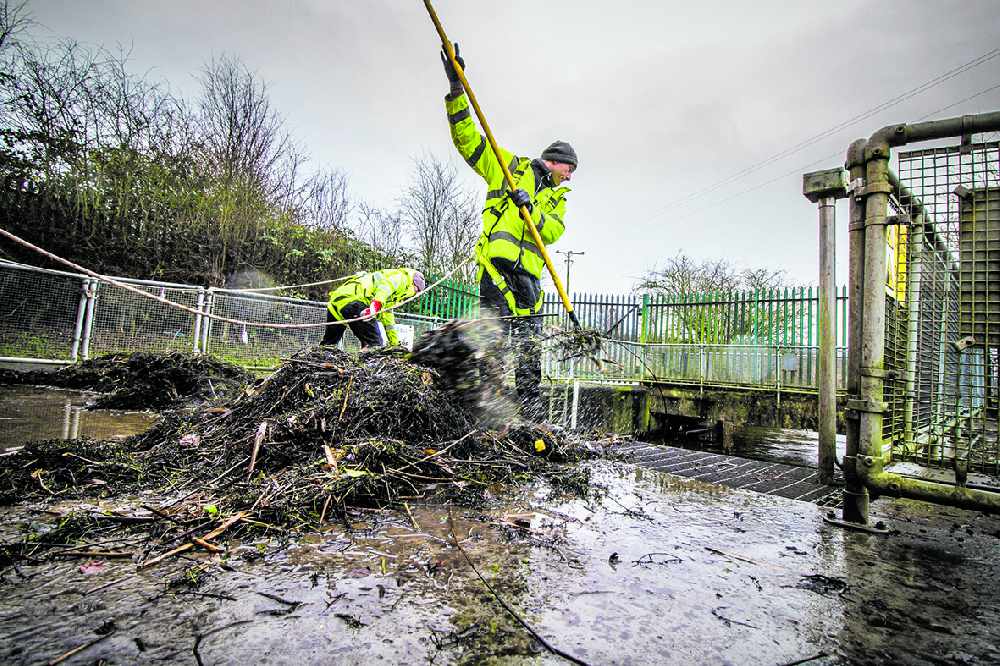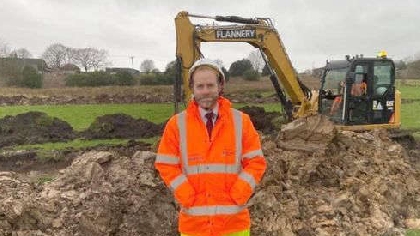
As the year draws to a close, Environment Agency Area Director Lesley Worswick reflects on a year of weather extremes and one of course dominated by the pandemic, but where the vital work of restoring nature has not gone away...
We have just a few weeks left before we add what has been one of the most unusual and challenging years many of us have faced in living memory to the archives.
It would be easy for us to look back at 2020 with shaken heads. But this uncertainty is only a single chapter in our lives - it is not the whole narrative.
It’s true that 2020 has given us a number of hurdles to overcome, but there were also moments of hope during this difficult year.
The climate emergency was a top buzzword. In May, the UK had 266 hours of sunshine. The previous record for a month was 265 hours in June 1957.
Just like when we see too much water, too much sunshine puts a great deal of pressure on our environment and our local teams spent much of the spring and summer responding to incidents of fish in distress, parched watercourses and algal blooms.
To add to the strain, the dry spring wasn’t long after the wettest February on record when highest or second highest river levels on record were reached across England. In part, this was thanks to Storms Ciara and Dennis which swept across the UK over two consecutive weekends bringing heavy rain and gusts of up to 97mph that caused widespread flooding and major disruption on the transport network.

Lesley Worswick
Extremely high and intense rainfall ranging between 40 and 80mm in 24 hours was seen across much of northern England.
The 213 area staff worked a total of 2,606 hours in our incident room or were mobilised on the ground to operate flood defences and temporary pumps, clear debris from rivers and inspect flood defences to ensure they were ready to respond as needed.
While some places did flood, and that is a horrible experience for those affected, we estimate that at least 47,725 properties and businesses across Greater Manchester, Merseyside and Cheshire were successfully protected by flood defences and assets and we were able to warn around 13,500 people well in advance of the storms.
While I want to celebrate such work, there’s still much more to do. The climate emergency means we are going to experience more of the types of storms we have seen this year. Hard defences are still key to our response, but we can’t build limitlessly high walls and barriers. We now need to look to nature to help build a mosaic of measures to combat it.
Locally, that’s exactly what we are doing. We are working with organisations such as the Woodland Trust and Moors for the Future to create Natural Flood Management (NFM) projects across Greater Manchester at the top of catchments, which will reduce flood risk and enhance the green space on your doorstep.
This includes sites such as Crompton Moor in Oldham where the installation of five leaky damns in October will not only slow the flow of flood water and create habitat for wildlife but will help demonstrate the potential of such schemes for climate mitigation.
The coronavirus pandemic led to an increased appreciation of nature as many of us took advantage of our local green and blue spaces. But, life in lockdown also exposed and amplified green inequality in society. Too many towns and cities in England, especially those with a strong industrial heritage, have too little green space.

CROMPTON MOOR: Slowing the flow of flood water.
Green Summit
This was one of the key focuses of this year’s Green Summit, held virtually over five days in September.
In her keynote speech during to open the event, our Chair Emma Howard Boyd said: “Air pollution today remains the single biggest environmental threat to health in the UK, shortening tens of thousands of lives each year. If we are to Build, Build, Build, we must do so in ways that will help people to Breathe, Breathe, Breathe.”
In Greater Manchester, we are working to speed up sustainable development through projects like IGNITION which sets a target of a ten per cent increase in green infrastructure in Greater Manchester by 2038 and Urban Pioneer which improved understanding of a natural capital approach and supported the development of the Government’s 25 Year Environment Plan.
Along the way we discovered that in Greater Manchester air quality regulation prevents around 60 deaths a year, 44,000 buildings benefit from reduced road traffic noise and one million people receive mental health benefits from access to green space!
Of course, the need for improved spaces is one that relates to all living beings in some way or another and November saw the completion of a 95k restoration project designed to improve the natural movement of fish along some of Greater Manchester’s most industrial watercourses.
The Environment Agency, Groundwork Greater Manchester and Greater Manchester Combined Authority worked together through the Natural Course Project to take out a redundant weir on the River Tonge in Bolton.
The removal of barriers like this not only makes it easier for adult fish (mainly brown trout, which are predominant within this section of water) to return to their natural spawning grounds, but it also allows younger fish (smolts) to migrate downstream and get ready to head out to sea once they have matured.
 CLEANING UP: Staff were mobilised in a major clean-up following the storms.
CLEANING UP: Staff were mobilised in a major clean-up following the storms.
Given the challenges that Greater Manchester’s rivers face - from historical pollution, population growth and increased water demand, this restoration project is a great example of how partnership working can bring vital improvements to our urban watercourses to make them much more resilient to changing environmental conditions.
Throughout this year, our Fisheries Enforcement Officers have continued to tread the banks of our beloved rivers and stillwaters, undertaking routine rod licence checks and also targeting poaching hotspots where we have received reports via our 0800 807060 hotline number.
As you might suspect, our incident response for fisheries is generally seasonal with more of this type of work to deal with during the warmer months.
Unusually for this time of year, we’ve had the full range of incidents to deal with including the death of a number of carp at a commercial fishery, aeration equipment deployed to a club fishery suffering low oxygen levels due to decaying autumn leaves, a massive algal bloom at another club fishery and a large, potentially very serious, milk spillage which threatened to wipe out a river!
As always, a swift response from our fisheries team in attending all these incidents has ensured the best possible outcome in preventing further fish deaths.
While the world’s attention, quite rightly, turned to the coronavirus crisis this year, the importance of restoring nature didn’t go away.
Eventually, the pandemic of 2020 will take its place in the history books. Our goal is to ensure that the value we have all placed on our natural world this year doesn’t lose momentum. We need to build back better, build back greener and build back healthier. That moment of opportunity is right now.
Until next time, I would like to wish you all a safe and very merry Christmas and a happy and positive New Year.
Main image:
FLOODS: Storms Ciara and Dennis brought the wettest February on record, winds of up to 97mph and widespread flooding.


 Road blocked after 'serious' incident
Road blocked after 'serious' incident
 TAMESIDE: This road’s been talked about since 1965 – now it’s finally set to be built
TAMESIDE: This road’s been talked about since 1965 – now it’s finally set to be built
 Two Porsche cars on the drive with cocaine in the boot found when police raided gangster's Denton home
Two Porsche cars on the drive with cocaine in the boot found when police raided gangster's Denton home
 Plans for HMO on Ashton print shop site
Plans for HMO on Ashton print shop site



